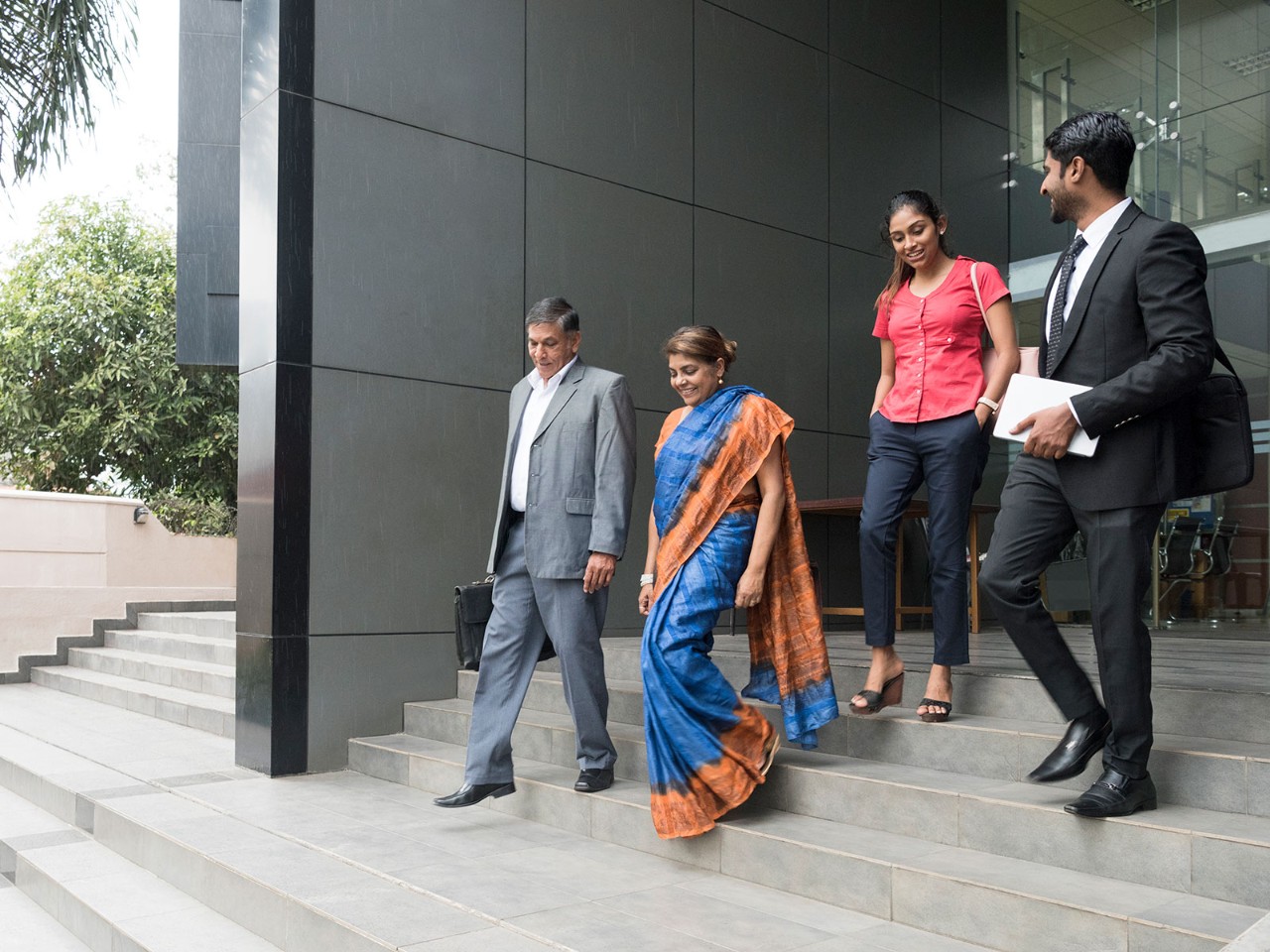
A panel discussion on business innovation was one of the breakout panel sessions at this year’s ACCA Singapore’s virtual conference. Moderated by Mun Siong Yoong FCCA, founder and CEO of Vallaris, the panellists were invited to discuss working together in a virtual environment, closing the digital trust gap, the public cloud, and the more general role of finance.
In addressing the shifting trend to remote working brought about by the pandemic, Tyler Capson, managing director – Asia of EverEdge, spoke about the difficulty of managing company culture. ‘How do you manage a company culture when it gets spread over countries?’ he asked. ‘How do you continue to manage that when you used to be able to get a sense of what’s going on in your business just by hearing the chatter around the office, and talking to people and sensing the sentiment?’
‘The challenge of going digital is how we can protect our authenticity and feel the reciprocity from the other party’
Hans Gunawan ACCA, head of business development at Hyperscale Datacenter Company, referenced the issue of trust as something that would be particularly difficult to achieve remotely. ‘It’s especially difficult with new customers, suppliers and team members. So the challenge of going digital is how we can protect our authenticity and feel the reciprocity from the other party.’
Speaking about his previous role, Sunil Golecha, former CFO Asia Pacific of Thomson Reuters, said that, in his experience, the idea that certain functions need to be physically closer in proximity to the business turned out to be untrue.
‘We have been working in a digital environment very successfully over the last 14 months,’ he said. ‘It’s basically shattered the whole concept that decision support and business partnering have to be in the same location as the business partner.’
Nevertheless, Golecha conceded that for certain functions involving co-creation or creativity, there was still an advantage in being physically together in one space. ‘I think the emotional connection is different when you are in a room together. You can see and sense who’s responding to a particular idea,’ he said.
Closing the gap
Golecha then shared that one of the big advantages that digital transformation has brought about is the levelling of the playing field between small and big businesses, both in terms of digital discovery, as well as bridging the trust gap.
He said that in this new age, small businesses were demonstrating their credibility with interesting and insightful strategies, such as the publishing of thought leadership pieces.
‘They are supplying information and data, which is relevant to the end-customer,’ he said. ‘This provides an insight into the kinds of capabilities [smaller businesses] can bring to the table – mainly in terms of speed and agility – which a large player may find difficult.
Winston Nesfield, partner at Strategy&, PwC’s strategy consulting arm, and programme leader at Proxtera, said that an important aspect of trustworthiness in the digital landscape depended on how seamlessly companies could integrate their products and services into the marketplace.
‘I think we will make the biggest advancement in trust when it becomes embedded into the everyday,’ he said. ‘The best payment experience is one that is totally invisible. And then that embedded nature, the interoperability secured by a certain amount of security, will then exponentially increase the marketplace for these digital services, because trust will become inherent.’
Public Cloud
Mun commented that just over a decade ago companies preferred to build and control the entire software ecosystem, but the arrival of the cloud had shifted the trend towards a more open and collaborative approach.
‘Don’t get siloed into your accounting roles. Learn more about what exactly the true value is that your business delivers to your customer’
Capson suggested that it was no longer so much about the ability to claim rights over something, but about who was able to control the economic flows in these cloud platforms.
‘Do I want to do a controlled garden approach and own and manage everything, or am I okay being a player and contributing my portion and allowing the ecosystem to grow and build?’ he asked.
‘I think the players see the value in that. The banking providers, the software providers and even the data centre providers are asking: “How can we contribute? How can we build on this?” It can make a much bigger pie for all of the parties involved.’
Nesfield agreed. ‘What we’re seeing in the clients that we advise is that it’s no longer about controlling the infrastructure. It’s about controlling the data, insights and the end-customer engagement,’ he said.
Golecha shared Thomson Reuters’ own experience of moving away from building their own platforms and applications. ‘In the last 10 years we have basically moved into partnering. The cloud technology has helped us to broaden our revenue streams and come up with new ways of monetising our core underlying asset,’ he said. ‘Because you could take exactly the same content and apply it to a very different business case, which was not necessarily something we could serve using our traditional platform.’
Role of Finance
Wrapping up the discussion, Mun brought the conversation back to how finance functions could do their part in identifying, protecting, value managing and commercialising their intangible assets.
Capson reiterated his point about the changing forms of value today, and how finance needed to be ready to identify them: ‘People need to take note that in this digital economy we’re seeing value in all different sorts of areas, whether it’s blockchain uses or NFTs (non-fungible tokens),’ he said.
‘If you can identify it and start to present it in a way that shows how another entity can use it, you’ll extract more value than traditional valuation methods are showing.’
Adding a final practical tip, Golecha advised: ‘Don’t get siloed into your accounting or finance roles. Learn more about what exactly the true value is that your business delivers to your customer. And why exactly do customers choose you or a competitor? Understand that and it will help you unlock value.’
For more information:
Read our overview of ACCA Singapore’s virtual conference breakout session on sustainable finance.




